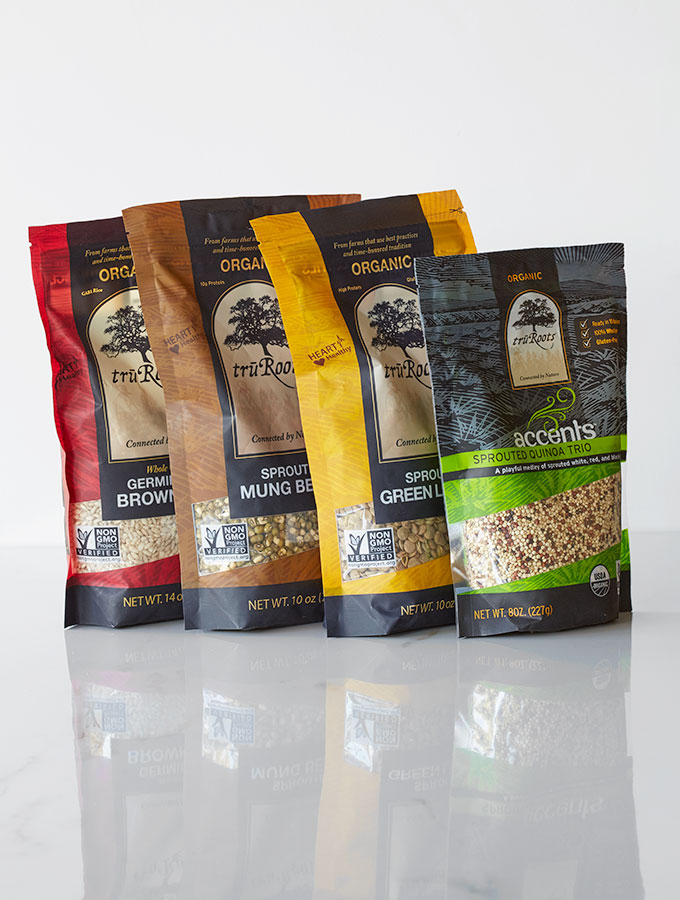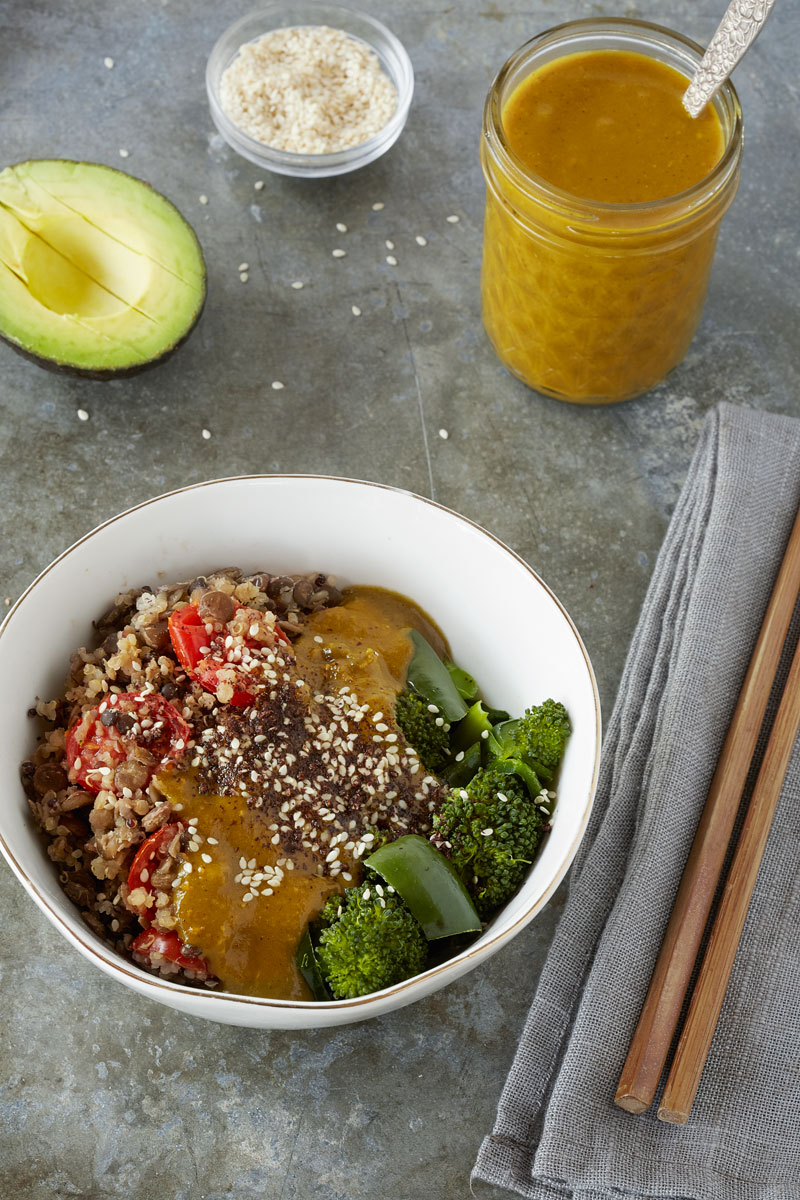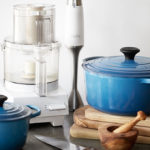
Time and health saving staples from truRoots
If you’re a sprouting pro and understand why it’s important to eat soaked and sprouted grains and legumes, you’ll love knowing about truRoots! The only down side is that truRoots only offers a handful of varieties: sprouted mung beans, lentils, quinoa and germinated rice.
Aside from the health benefits, which you can get the full scoop on below, another perk of cooking with these pre-sprouted dry goods is dramatically reduced cooking times. On average you’re looking at about 25 minutes for perfectly cooked beans or rice and about 12 minutes for sprouted quinoa.
If you’re ready to jump on these beans and grains, get them at Thrive Market for a buck less than you’ll find at most grocers, or just stop by Whole Foods to get one now.
If you’re not familiar with Mung Beans, or just want a new recipe, try my Creamy Eggplant & Mung Bean Soup! Should you like to try making the best ever rice, try this Cardamom Stove Top Rice recipe.

Why Sprouting Is Essential To Good Health
All grains, nuts and seeds contain a series of anti-nutrients which act as natural pesticides, sprouting inhibitors and other essential factors for the health of the plant. Unfortunately when consumed by humans, unlike the multi-chamber stomachs of ruminants, the acids in our guts are not strong enough to brake those chemicals down effectively.
As a result the physic acid, tannins, gluten-related proteins and enzyme-inhibitors in soaked grains will:
- bind with essential minerals in the gut, flushing them from your body
- block new mineral absorption
- irritate the gut
- inhibit digestion
- lead to bone loss
- cause allergies
- put stress on the pancreas
Altogether these effects can lead health problems — but can be prevented with one simple step.
During the soaking process the acids in vinegar or lemon juice help to eliminate anti-nutrient compounds while allowing the plant to sprout. The sprouted seed released from dormancy becomes a live food once again. Nuetralizing the seed-preserving compounds allows for the body to stay mineralized while being further fortified with essential minerals (meaning that your body cannot produce them) otherwise locked into the grain. Bio-available vitamin content increases, “tannins, complex-sugars, gluten and other difficult-to-digest substances are partially broken down into simpler components that are more readily available for absorption.” (source)
As you can see, this process is non-negotiable if you’d like to improve or maintain good health. The bonus is that your cooking times will be drastically reduced. By about half for most grains!
I’ll admit that I don’t soak and sprout my nuts and seeds. You really need a dehydrator for that, and due to considerations of space, time and energy, I’ve decided to let that slide. My diet contains a very small fraction of nuts and seeds compared to how much, and how often, grains play a role in my diet. This feels good to me – and it ends up saving me time!
If you’d like to try sprouting your own grains, follow these steps:
- Soak for a minimum of 6 hours, but you can leave the grains in the same water for up to about 24 hours.
- If you’re not ready to cook when 24 hours is up, simply refill with fresh water and vinegar.
- Soak in a dark warm place, like a cupboard or oven (while turned off).
- Pour off the soaking liquid before cooking and rinse the grains at least once.
- For extra pure grains: pour off soaking liquid, add fresh water, stir well and let any bubbles or foam rise, pour water off. Repeat until all the impurities have been released and the water is clear.
- Soaked grains absorb water, decreasing cooking time and grain to water ratios. Once you’ve made soaked grains a few times you’ll get a better sense of water ratios and will know when to add less, or more.
- Store dry grains in a glass container with a tight lid, away from direct sunlight to prevent rancidity of the fragile oils contained in the seeds.




